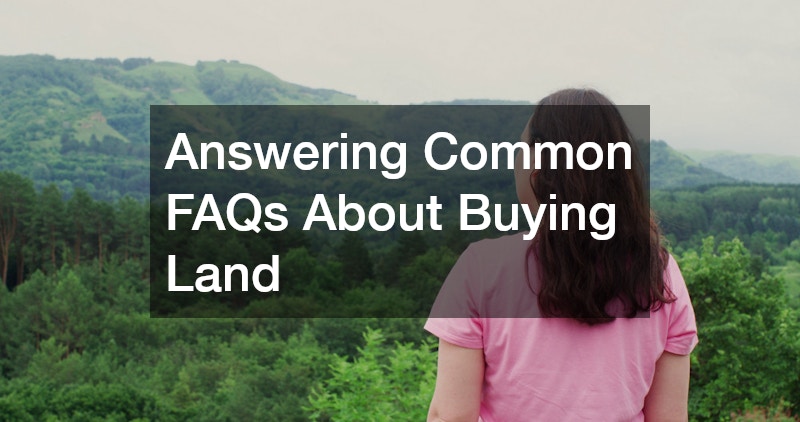Purchasing land can be an exciting step towards building your dream home, investing in property or starting a business. However, it can also feel daunting if you are unfamiliar with the process. Understanding the key considerations in a land sale is crucial for making informed decisions and avoiding common pitfalls. In this article, we answer some frequently asked questions about buying land in Australia.
What Should I Know Before Considering a Land Sale?
Before you consider a land sale, it is important to have a clear idea of your purpose for the land. Are you planning to build a home, start a business or invest for future development? Your intentions will influence the type of land you should buy, its location, zoning restrictions and potential costs.
Additionally, researching local council regulations and building codes is essential. This will help ensure the land is suitable for your intended use and that there are no unexpected restrictions.
How Do I Determine the Value of Land?
Valuing land can be more complex than assessing a home. Factors such as location, access to utilities, zoning and potential for development all affect the price. You can consult local property agents, check recent land sale records or hire a professional valuer to get an accurate estimate. Understanding the land’s value not only helps you make a fair offer but also prevents overpaying in a competitive market.
What Legal Considerations Should I Be Aware Of in a Land Sale?
Legal due diligence is a critical part of any land sale. Make sure the title of the land is clear, meaning there are no disputes or encumbrances that could affect your ownership. You should also check for easements, covenants or restrictions that may limit how you can use the property. Engaging a conveyancer or solicitor to review contracts and documentation can save you from costly surprises later.
Are There Financing Options for Buying Land?
Unlike purchasing an established property, securing finance for land can be more challenging. Some banks may require a larger deposit, typically between 20 to 30% and offer higher interest rates compared to a standard home loan. Additionally, some lenders may only finance land that is ready for construction. Before committing to a land sale, it is wise to explore all available financing options and understand the repayment terms.
How Can I Check the Land’s Suitability for My Needs?
Physical inspections are vital in a land sale. Check for access roads, soil quality, drainage and environmental issues that could affect your plans. In some cases, obtaining a soil test or environmental report may be necessary, especially if you plan to build a home or agricultural operation. Knowing these factors beforehand ensures the land is practical for your intended use.
What Are the Ongoing Costs Associated with Land Ownership?
Owning land comes with ongoing costs that are often overlooked. These may include council rates, land taxes, insurance and maintenance costs. If the land is undeveloped, you may also need to budget for clearing, fencing or connecting utilities. Understanding these expenses helps you plan financially and avoid unexpected burdens after the land sale is complete.
How Do I Make an Offer on Land?
Making an offer on land involves research and negotiation. Start by comparing recent land sales in the area to determine a reasonable price. When making an offer, consider including conditions such as finance approval or a satisfactory land survey. This provides you with protection if any issues arise before the sale is finalised. Once your offer is accepted, a contract is drafted, usually with the assistance of a solicitor or conveyancer, to complete the land sale legally.
Can I Resell Land Quickly After Purchase?
Reselling land depends on market conditions, location and demand. Some land may appreciate quickly, while other parcels may take longer to sell. It is important to buy land with a long-term perspective unless you are experienced in property investment. Consulting a property agent or researching local market trends can provide insight into the potential resale value and timing.
Buying land is a significant investment that requires careful consideration, research and professional advice. Understanding the land sale process, assessing the property’s suitability, considering legal and financial obligations and factoring in ongoing costs will help you make informed decisions. Whether you are purchasing land for building, farming or investment, thorough preparation ensures a smoother experience and greater confidence in your land purchase.
By keeping these frequently asked questions in mind, you can approach a land sale with clarity and avoid common mistakes that many first-time buyers encounter.


